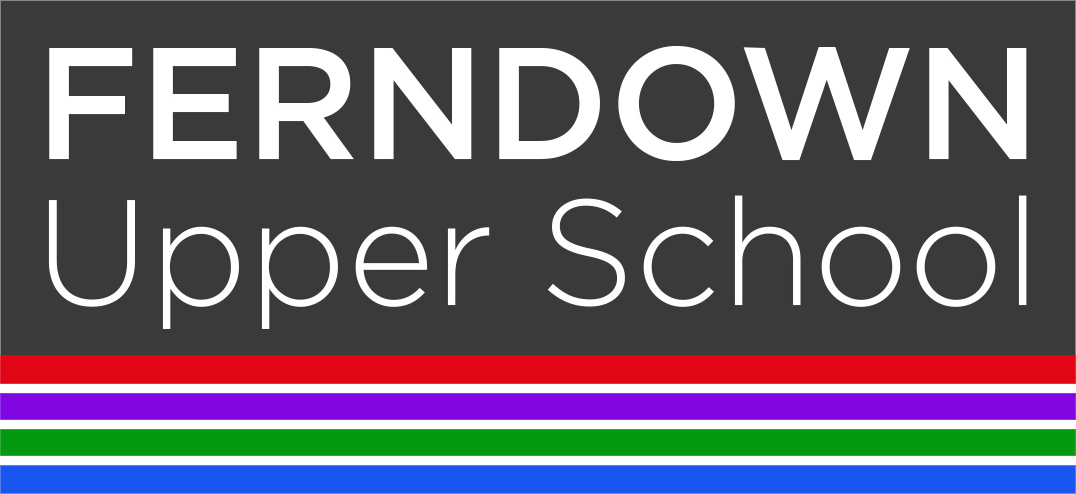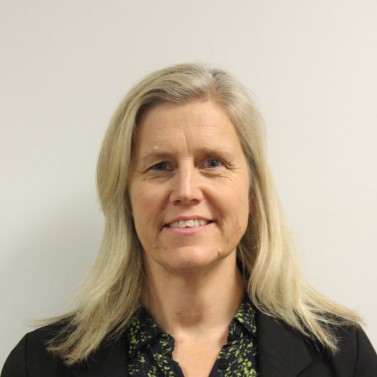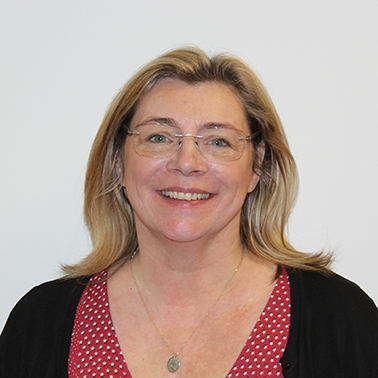Curriculum
Our Curriculum at FUS
We are very proud of the broad and enriching curriculum that we offer at FUS. Our curriculum is the heart beat of our school’s ethos and supports all students to be highly successful young people and effective independent young adults with a genuine passion for life-long learning.
The curriculum should be broad, in the sense that a wide spectrum of experience should be offered to all students of all abilities, needs and background. The curriculum should be balanced, in the sense that the amount of time spent in areas of the curriculum should meet the students’ present and future needs, both in terms of work and their role as responsible and fully participating members of society. The students’ experience at FUS should be rich and stimulating, with curriculum opportunities extended beyond timetabled lessons. Through this curriculum students at FUS will achieve better than national average progress in the qualifications they take. This will be reflected in positive student destinations, progression pathways and extensive opportunities for further study. At FUS we aim to offer a broad curriculum (despite the constraints posed by accountability measures and budget).
Here at FUS, we have rationalised our curriculum design in terms of intent, implementation and impact.
Curriculum Intent
The curriculum aims to enable all our young people to become:
1. Successful and lifelong learners, who enjoy learning, make outstanding progress and achieve.
2. Confident individuals who are able to lead safe and healthy lives.
3. Responsible citizens who make a positive contribution to society and achieve economic well-being
4. Students with skills, knowledge and attitudes which will help them to become
self-respecting and self-motivated people, able to make informed and reasoned choices for themselves and with regard to others.
5. Creative thinkers who develop enquiring and critical minds, to be able to question, present an informed and coherent argument and act responsibly.
6. People who understand the nature of the world around them and to show care and concern for the environment.
7. Independent enquirers who develop powers of observation, logical thought and communication.
8. Self managers in a world where permanent employment is uncertain and to value the acquisition of relevant skills and attitudes relating to employment through an extensive program of careers education appropriate for year group and context.
9. Team workers with moral and spiritual values, who take responsibility for themselves and others at work, socially and in wider society.
10. Effective participators in cultural, social, economic and political life, recognising the broad and pluralistic nature of our society, expecting a diversity of cultures and languages, and recognising that all members of society have both rights and responsibilities.
11. People who appreciate human achievement in all fields, past and present, to encourage creative talents and to celebrate success.
12. Students who aim to achieve their highest standards.
Curriculum Implementation
The curriculum should be implemented within a positive ethos of encouragement, which values the contribution which each student and member of staff makes to the school. Senior Leaders and Directors of Learning have a particular role in monitoring the practice of this policy and it is the responsibility of all staff to ensure that their practice reflects these principles. This policy provides the framework for the delivery of the curriculum at Ferndown Upper School.
(Where school budget and available resources allow).
1. Through local partnerships, students should experience progression of the curriculum. In particular, the school should work with its feeder middle schools to ensure that the there is a continuity of learning from years 7-13. The head of KS3 will develop working links with our subject leads in middle schools to ensure this.
2. The curriculum should be accessible to all students, using appropriate methods of differentiation to ensure maximum possible access for each individual student. In line with relevant legislation, the school will make all reasonable adjustments to enable all students to access the curriculum.
3. Teaching groups will be organised by subject areas in ways best suited to meet the needs of the students and use resources efficiently.
4. Students should feel involved in their learning and be encouraged to develop the skills of independent highly motivated learners, to take responsibility for their work. Go4Schools underpins independent study and homework and a range of individual interventions will support learners. This is also helped by positive relationships between staff and students where students feel valued and their self-esteem is high.
5. There should be access to qualifications for all, in the framework of accreditations for 13 to 19 year old students. Each qualification is valued equally as a measure of individual achievement.
6. Subject Curriculum plans will reflect a broad range of SMSC learning experiences alongside a wide range of extra curriculum opportunities to explore SMSC issues including assemblies, tutor activities, extra-curricular clubs and societies and individual opportunities to develop confidence and self-awareness.
7. The school will keep its curriculum under constant review, reflecting the changing needs of society, the local job market and the needs of students. Views of students, teachers, Governors and parents will be regularly sought and heeded to determine progress of the curriculum.
8. A curriculum research group consisting of senior leaders and involving relevant stake holders as required will meet regularly to monitor, review and improve our curriculum provision, reporting to the broader strategy group in order to consult effectively and implement improvement.
Curriculum Impact
1. Student progress – Students consistently achieve higher than national average outcomes at Key Stage 4 and 5, particularly the most disadvantaged pupils with special educational needs and/ or disabilities who should achieve exceptionally well.
2. Exam analysis in action – Exam analysis review meetings are held annually as part of the whole school monitoring process and will inform action plans which will sustain curriculum improvement.
3. Gatsby criteria – Careers curricular provision at FUS will be measured alongside the Gatsby criteria through regular review and action planning for improvement.
4. Student surveys and voice – Regular periodic surveys of student opinion will inform curriculum development. These will relate to behaviour, classroom culture, student learning, club 24, and through destination interviews/ data.
5. Parent focus/ consultation – Parents will be regularly consulted through a variety of media including the governing body, regularly and periodic parent focus groups and tools such as survey monkey and through our established communication tools such as parent mail and Go4Schools. Parents will be encouraged to let us know of any suggestions for curricular improvement or any concerns that they may have.
6. Staff/ Governor consultation – Senior leaders will regularly consult and report to staff groups and the governing body regarding curricular development and improvement.
Key Staff
Mrs S Chater – Strategic Curriculum Development And Timetable
Mrs – G Milsom – Curriculum Manager
What does the Curriculum look like at FUS?
Students in all year groups follow a broad, balanced and personalised curriculum which leads to the best possible opportunities for the future. The curriculum reflects the values of Britain today including respect for democracy and support for participation in the democratic process, respect for the basis on which the law is made and applies in England, support for equality of opportunity for all, support and respect for the liberties of all within the law and respect for and tolerance of different faiths and religious and other beliefs. This will enable all our learners to achieve the best results, enable opportunities for further study and progression and to develop a broad set of life skills and values which will enable them to successfully contribute to society and support them as their lives move on.
Year 9
All students study Maths, English Language and Literature, Biology, Chemistry, Physics, PE, Geography, History, Design Technology, Textiles, ICT, Art, Religious Studies, Personal & Social Education, Music and Drama. Most students will study a Modern language, whereas others will have additional English in order to boost their Literacy skills. The Year 9 Programme runs from September to May of Year 9 and students begin full GCSE options from the beginning of June in Year 9. This allows a full 2 year programme for GCSE courses.
Years 10 and 11
All students will study Maths, English Language, English Literature, Biology, Chemistry and Physics (3 separate Science GCSE courses) and will opt for a further course in either Health & Fitness, Events Management, Computing or Ethics & Philosophy. All students will have a free choice of a further three GCSE or GCSE equivalent options to choose from. All students are able to take a Modern Foreign Language, and a large number do so. Students are also able to study a second language; either French or Spanish.
Option subjects include: Geography, History, Art, Drama, Music, Business Studies (GCSE and vocational), Media Studies (GCSE & vocational), Photography, Health and Social Care, Computer Science, Fashion and Textiles, Spanish, French, Design Technology, Food Technology, Ethics and Philosophy and PE.
All students in years 10 and 11 continue to have lessons in PE and regular ‘drop-down’ days for PSHE (Personal, Social and Health and Careers Education).
In summary, our curriculum at FUS:
• Is HIGHLY PERSONALISED. Students have great scope to tailor the curriculum to their learning needs and interests. Students have significant choices about the curriculum they follow. These choices are always supported by Individual Advice and Guidance.
• Encourages students to develop POSITIVE ATTITUDES and a sense of responsibility towards themselves, other people in the community and other cultures.
• Allows outstanding ACHIEVEMENT. Students have every opportunity to gain the qualifications needed to maximise their life chances for further study and beyond FUS.
• Promotes the acquisition of LIFE SKILLS, including Personal, Learning and Thinking Skills (PLTS) and Social and Emotional Aspects of Learning (SEAL). Furthermore, students develop key skills of communication, ICT, Number and Word. Through this approach FUS students are well prepared for life and work in the 21st Century.
• Is INSPIRATIONAL, ENGAGING AND RELEVANT for all students. Through high quality, enjoyable, memorable and rich learning experiences students develop a lifelong love of learning.
• ALLOWS PROGRESSION. At all stages students follow courses and programmes of study that will leave them qualified and well-equipped for the next level of learning: at FUS in our 6th Form, further training/learning and in the world of work.
• Promotes HIGH ASPIRATIONS. All students will be encouraged to strive to fulfil their potential and their achievements will be recognised, valued and celebrated.
If you would like further information on our curriculum please use the details on the contact us page which can be found here.
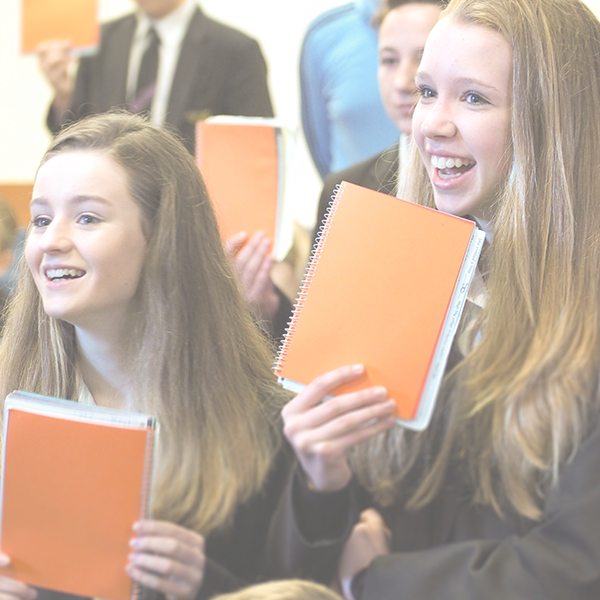
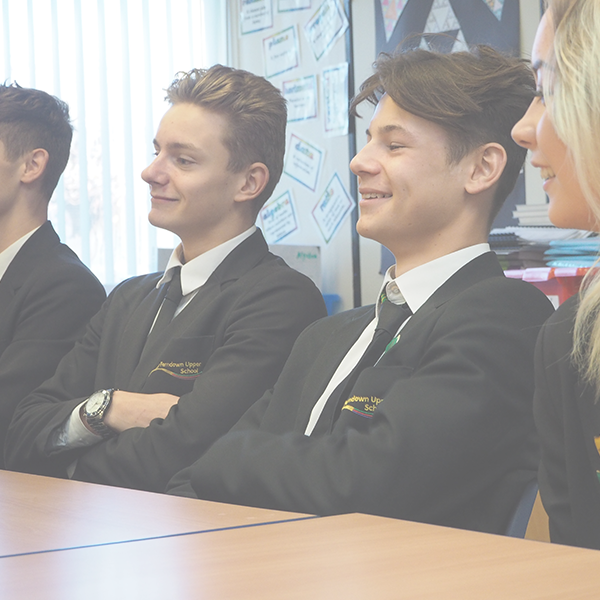
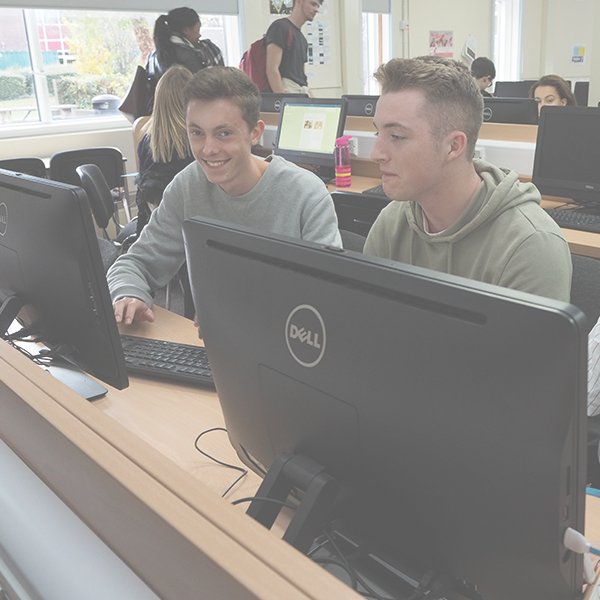
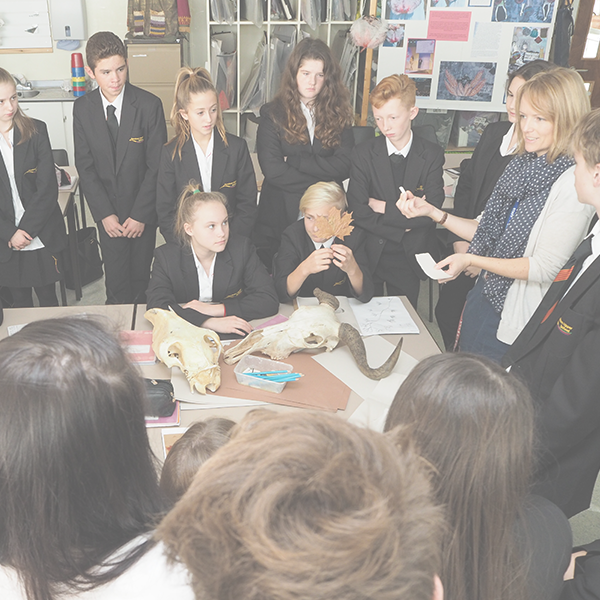
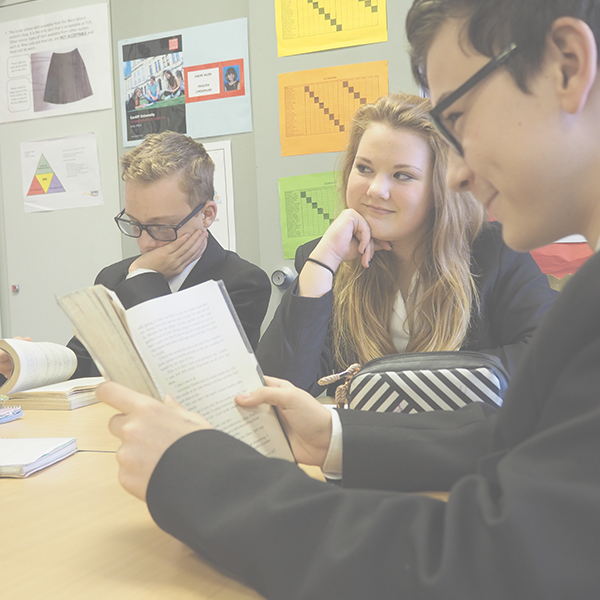
Our Curriculum at FUS
We are very proud of the broad and enriching curriculum that we offer at FUS. Our curriculum is the heart beat of our school’s ethos and supports all students to be highly successful young people and effective independent young adults with a genuine passion for life-long learning.
The curriculum should be broad, in the sense that a wide spectrum of experience should be offered to all students of all abilities, needs and background. The curriculum should be balanced, in the sense that the amount of time spent in areas of the curriculum should meet the students’ present and future needs, both in terms of work and their role as responsible and fully participating members of society. The students’ experience at FUS should be rich and stimulating, with curriculum opportunities extended beyond timetabled lessons. Through this curriculum students at FUS will achieve better than national average progress in the qualifications they take. This will be reflected in positive student destinations, progression pathways and extensive opportunities for further study. At FUS we aim to offer a broad curriculum (despite the constraints posed by accountability measures and budget).
Here at FUS, we have rationalised our curriculum design in terms of intent, implementation and impact.
Curriculum Intent
The curriculum aims to enable all our young people to become:
1. Successful and lifelong learners, who enjoy learning, make outstanding progress and achieve.
2. Confident individuals who are able to lead safe and healthy lives.
3. Responsible citizens who make a positive contribution to society and achieve economic well-being
4. Students with skills, knowledge and attitudes which will help them to become
self-respecting and self-motivated people, able to make informed and reasoned choices for themselves and with regard to others.
5. Creative thinkers who develop enquiring and critical minds, to be able to question, present an informed and coherent argument and act responsibly.
6. People who understand the nature of the world around them and to show care and concern for the environment.
7. Independent enquirers who develop powers of observation, logical thought and communication.
8. Self managers in a world where permanent employment is uncertain and to value the acquisition of relevant skills and attitudes relating to employment through an extensive program of careers education appropriate for year group and context.
9. Team workers with moral and spiritual values, who take responsibility for themselves and others at work, socially and in wider society.
10. Effective participators in cultural, social, economic and political life, recognising the broad and pluralistic nature of our society, expecting a diversity of cultures and languages, and recognising that all members of society have both rights and responsibilities.
11. People who appreciate human achievement in all fields, past and present, to encourage creative talents and to celebrate success.
12. Students who aim to achieve their highest standards.
Curriculum Implementation
The curriculum should be implemented within a positive ethos of encouragement, which values the contribution which each student and member of staff makes to the school. Senior Leaders and Directors of Learning have a particular role in monitoring the practice of this policy and it is the responsibility of all staff to ensure that their practice reflects these principles. This policy provides the framework for the delivery of the curriculum at Ferndown Upper School.
(Where school budget and available resources allow).
1. Through local partnerships, students should experience progression of the curriculum. In particular, the school should work with its feeder middle schools to ensure that the there is a continuity of learning from years 7-13. The head of KS3 will develop working links with our subject leads in middle schools to ensure this.
2. The curriculum should be accessible to all students, using appropriate methods of differentiation to ensure maximum possible access for each individual student. In line with relevant legislation, the school will make all reasonable adjustments to enable all students to access the curriculum.
3. Teaching groups will be organised by subject areas in ways best suited to meet the needs of the students and use resources efficiently.
4. Students should feel involved in their learning and be encouraged to develop the skills of independent highly motivated learners, to take responsibility for their work. Go4Schools underpins independent study and homework and a range of individual interventions will support learners. This is also helped by positive relationships between staff and students where students feel valued and their self-esteem is high.
5. There should be access to qualifications for all, in the framework of accreditations for 13 to 19 year old students. Each qualification is valued equally as a measure of individual achievement.
6. Subject Curriculum plans will reflect a broad range of SMSC learning experiences alongside a wide range of extra curriculum opportunities to explore SMSC issues including assemblies, tutor activities, extra-curricular clubs and societies and individual opportunities to develop confidence and self-awareness.
7. The school will keep its curriculum under constant review, reflecting the changing needs of society, the local job market and the needs of students. Views of students, teachers, Governors and parents will be regularly sought and heeded to determine progress of the curriculum.
8. A curriculum research group consisting of senior leaders and involving relevant stake holders as required will meet regularly to monitor, review and improve our curriculum provision, reporting to the broader strategy group in order to consult effectively and implement improvement.
Curriculum Impact
1. Student progress – Students consistently achieve higher than national average outcomes at Key Stage 4 and 5, particularly the most disadvantaged pupils with special educational needs and/ or disabilities who should achieve exceptionally well.
2. Exam analysis in action – Exam analysis review meetings are held annually as part of the whole school monitoring process and will inform action plans which will sustain curriculum improvement.
3. Gatsby criteria – Careers curricular provision at FUS will be measured alongside the Gatsby criteria through regular review and action planning for improvement.
4. Student surveys and voice – Regular periodic surveys of student opinion will inform curriculum development. These will relate to behaviour, classroom culture, student learning, club 24, and through destination interviews/ data.
5. Parent focus/ consultation – Parents will be regularly consulted through a variety of media including the governing body, regularly and periodic parent focus groups and tools such as survey monkey and through our established communication tools such as parent mail and Go4Schools. Parents will be encouraged to let us know of any suggestions for curricular improvement or any concerns that they may have.
6. Staff/ Governor consultation – Senior leaders will regularly consult and report to staff groups and the governing body regarding curricular development and improvement.
Key Staff
Mrs S Chater – Strategic Curriculum Development And Timetable
Mrs – G Milsom – Curriculum Manager
What does the Curriculum look like at FUS?
Students in all year groups follow a broad, balanced and personalised curriculum which leads to the best possible opportunities for the future. The curriculum reflects the values of Britain today including respect for democracy and support for participation in the democratic process, respect for the basis on which the law is made and applies in England, support for equality of opportunity for all, support and respect for the liberties of all within the law and respect for and tolerance of different faiths and religious and other beliefs. This will enable all our learners to achieve the best results, enable opportunities for further study and progression and to develop a broad set of life skills and values which will enable them to successfully contribute to society and support them as their lives move on.
Year 9
All students study Maths, English Language and Literature, Biology, Chemistry, Physics, PE, Geography, History, Design Technology, Textiles, ICT, Art, Religious Studies, Personal & Social Education, Music and Drama. All students will study either French or Spanish. The Year 9 Programme runs from September to May of Year 9 and students begin full GCSE options from the beginning of June in Year 9. This allows a full 2 year programme for GCSE courses.
Years 10 and 11
All students will study Maths, English Language, English Literature, Biology, Chemistry and Physics (3 separate Science GCSE courses) and will opt for a further course in either Health & Fitness, Events Management, Maths Statistics or Ethics & Philosophy. All students will have a free choice of a further three GCSE or GCSE equivalent options to choose from. All students are able to take a Modern Foreign Language, and a large number do so. Students are also able to study a second language; either French or Spanish.
Option subjects include: Geography, History, Art, Drama, Music, Business Studies (GCSE and vocational), Media Studies (GCSE & vocational), Photography, Health and Social Care, Computer Science, Fashion and Textiles, Spanish, French, Design Technology, Food Technology, Ethics and Philosophy and PE.
All students in years 10 and 11 continue to have lessons in PE and regular ‘drop-down’ days for PSHE (Personal, Social and Health and Careers Education).
In summary, our curriculum at FUS:
• Is HIGHLY PERSONALISED. Students have great scope to tailor the curriculum to their learning needs and interests. Students have significant choices about the curriculum they follow. These choices are always supported by Individual Advice and Guidance.
• Encourages students to develop POSITIVE ATTITUDES and a sense of responsibility towards themselves, other people in the community and other cultures.
• Allows outstanding ACHIEVEMENT. Students have every opportunity to gain the qualifications needed to maximise their life chances for further study and beyond FUS.
• Promotes the acquisition of LIFE SKILLS, including Personal, Learning and Thinking Skills (PLTS) and Social and Emotional Aspects of Learning (SEAL). Furthermore, students develop key skills of communication, ICT, Number and Word. Through this approach FUS students are well prepared for life and work in the 21st Century.
• Is INSPIRATIONAL, ENGAGING AND RELEVANT for all students. Through high quality, enjoyable, memorable and rich learning experiences students develop a lifelong love of learning.
• ALLOWS PROGRESSION. At all stages students follow courses and programmes of study that will leave them qualified and well-equipped for the next level of learning: at FUS in our 6th Form, further training/learning and in the world of work.
• Promotes HIGH ASPIRATIONS. All students will be encouraged to strive to fulfil their potential and their achievements will be recognised, valued and celebrated.
If you would like further information on our curriculum please use the details on the contact us page which can be found here.
